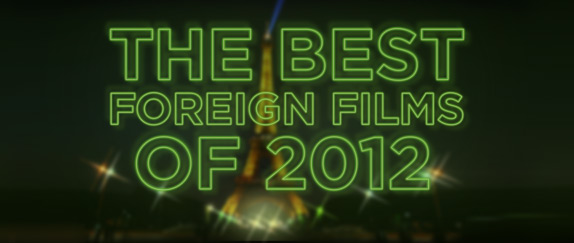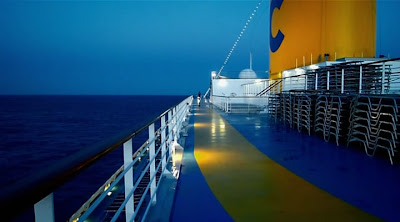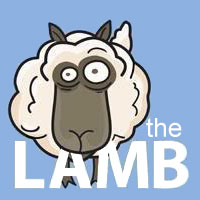Genre: Drama
Director: Jean-Luc Godard
Starring: Alain Badiou, Catherine Tanvier, Christian Sinniger, Patti Smith
Duration: 101 min.
Rating: 6.0/10
Summary:
A symphony in three movements.
Such things: A Mediterranean cruise. Multiple conversations, in multiple languages, between passengers, almost all of whom are on holiday...
Our Europe: At night, a sister and her younger brother have summoned their parents to appear before the court of their childhood. The children demand serious explanations of the themes of Liberty, Equality and Fraternity.
Our humanities: Visits to six sites of true or false myths: Egypt, Palestine, Odessa, Hellas, Naples and Barcelona.
IMDB
Amazon
Socialism, the latest film from 80 year old Nouvelle Vague pioneer Jean-Luc Godard, premiered at the 2010 Cannes Film Festival. This is his first film shot in digital HD and is very visually breathtaking, the vivid colors of the Mediterranean are awe inspiring. However, the narrative itself is rather cryptic and incoherent, with characters speaking many different languages, and only translated to a rudimentary pidgin English in the subtitles.
Director: Jean-Luc Godard
Starring: Alain Badiou, Catherine Tanvier, Christian Sinniger, Patti Smith
Duration: 101 min.
Rating: 6.0/10
Summary:
A symphony in three movements.
Such things: A Mediterranean cruise. Multiple conversations, in multiple languages, between passengers, almost all of whom are on holiday...
Our Europe: At night, a sister and her younger brother have summoned their parents to appear before the court of their childhood. The children demand serious explanations of the themes of Liberty, Equality and Fraternity.
Our humanities: Visits to six sites of true or false myths: Egypt, Palestine, Odessa, Hellas, Naples and Barcelona.
IMDB
Amazon
Socialism, the latest film from 80 year old Nouvelle Vague pioneer Jean-Luc Godard, premiered at the 2010 Cannes Film Festival. This is his first film shot in digital HD and is very visually breathtaking, the vivid colors of the Mediterranean are awe inspiring. However, the narrative itself is rather cryptic and incoherent, with characters speaking many different languages, and only translated to a rudimentary pidgin English in the subtitles.


























7 comments:
I agree his output wasn't the same after he became political.
I haven't seen it yet but I think I'll see it even if I tend to like Godard's post 1968 films less than his early masterpieces... The visuals seem superb though. Looks like his Éloge de l'amour, incoherent and full of symbolism... I'll get back to you when I'll watch it!
Not too interested in the movie, thanks for the post though!
sounds like a really good drama
Think I'll skip this one. "Pretentious? moi?"
Jean-Luc
Godard’s “Film Socialisme” (2010) is
not about “socialism” but - the direction of Western civilization obsessed with
“technological and material progress” towards more wealth and power. The film
consists of three parts – the luxury liner’s cruise towards a “promising future”,
life in a French provincial city symbolizing the “backward” back-yard of our
civilization, and a poetic representation of the repressed and the pauperized
people’s struggle for human dignity in various parts of the world. If the first
two parts are fictional, the third consists of Godard’s montage of clips and
stills from fictional and documentary films that were shot at different times by
filmmakers of various nationalities.
The plot of the film is dominated by the description of
the destiny of two families – a previous high SS-rank Otto Goldberg, big scale thief
of public money, and his two grandchildren (corrupted by consumerism and
amorously fixated on each other as a psychological compensation), and the
garage owners in rural France and their two children (searching for meaning of
life and oriented on psychological growth).
Each part is constructed in a different stylistic
paradigm. Life of the passengers on the “ship of progress” moving towards a more
technological and financial power, is depicted by a combination of two clashing
ideas – that of the social/financial elite and that of the crowd of demos. By
this paradoxical blend: by showing the rich as the crowd, Godard is making a
point about the spiritual emptiness and psychological impoverishment of many in
today’s Western population where poor are prone to be idolatrous of the rich
and dream to belong to the financial elites. Godard shows the wealthy as
spiritual bums and psychologically homeless. The small business people of the
second part of the film, on the other hand, are sensitive and existentially
intelligent, not with calculating but with human minds, and psychologically
whole – their depiction is not “generalized”, Godard addresses them with an inexhaustible
curiosity and compassion. It is here that Godard creates the most startling images
of the film, like an incredible pantomime of mutual beyond-bodily recognition
between a son and his mother.
The third part of the film is visually musical and
emotionally tormenting. We see the cruelty of power, lust of wealth,
indifference of prosperity, the bleeding public realm, emotional violence and
absence of grace. And we see human suffering and human heroism of continuous
fight for justice, equality and humanity. The film establishes the film
director as a visionary spokesman for the human destiny in 21st
century.
By Victor Enyutin
Thank you for that thorough analysis. Makes me consider it in a different light. I may have to give this one another chance.
Post a Comment